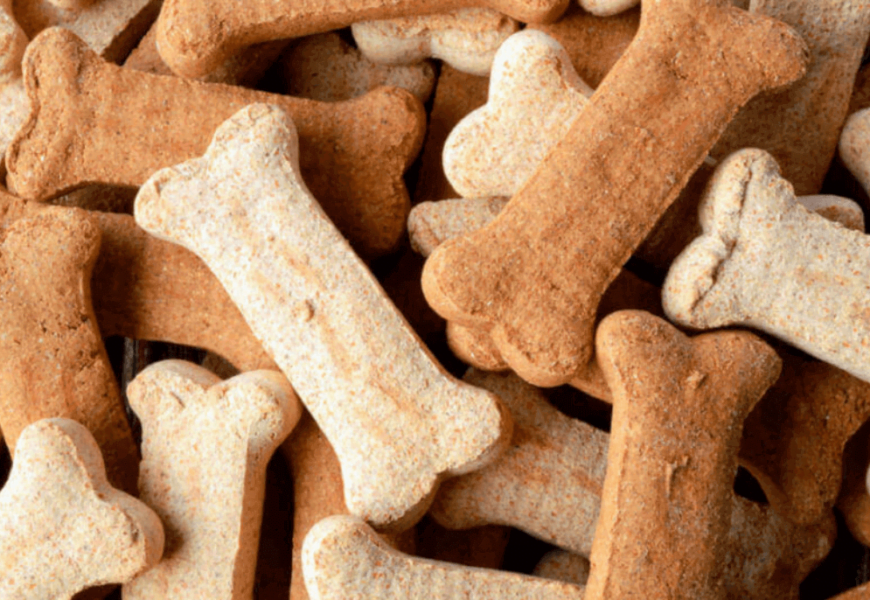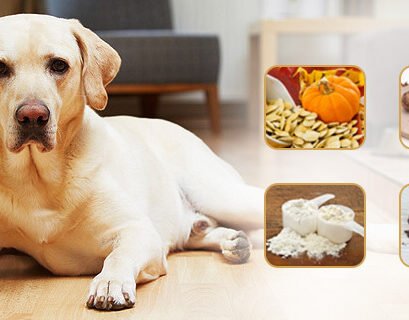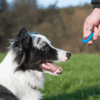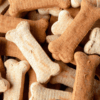There is some debate about whether Milk-Bones are good or bad for puppies. Some people believe that they are a healthy treat that can help puppies develop strong teeth and bones, while others believe that they are unhealthy and can cause digestive problems
Milk Bones and Their Effects on Dogs
Milk bones are a type of dog treat that are made from wheat flour, meat and bone meal, milk, salt, and other ingredients. They are shaped like small bones and come in various flavors and sizes. Milk bones are popular among dog owners because they are inexpensive, widely available, and easy to store.
Milk bones bad for dogs
Can Milk-Bones Make Dogs Sick? There is some debate about whether Milk-Bones are good or bad for dogs. There are also some claims and controversies surrounding milk bones and their effects on dogs. Some people believe that milk bones are beneficial for dogs, while others argue that they are harmful or unnecessary. In this article, we will discuss the pros and cons of milk bones for dogs, based on scientific evidence and expert opinions. You need to consider some aspects when giving milk bones to dogs are listed below
1. Nutritional Value
One of the aspects to consider when giving milk bones to dogs is their nutritional value. How do milk bones compare to other types of dog treats in terms of calories, protein, fat, fiber, vitamins, minerals, and additives?
According to the Nutrient Database of the United States Department of Agriculture (USDA), one medium-sized milk bone (10 g) contains about 40 calories, 1.3 g of protein, 1.1 g of fat, 0.5 g of fiber, and 0.2 mg of iron. It also contains small amounts of calcium, phosphorus, magnesium, zinc, copper, manganese, selenium, vitamin A, vitamin E, thiamin, riboflavin, niacin, pantothenic acid, vitamin B6, folate, vitamin B12, and choline. However, it also contains 120 mg of sodium, which is about 5% of the recommended daily intake for dogs. Moreover, it contains some additives, such as sugar, artificial flavors, colors, and preservatives, that may not be suitable for some dogs.
Compared to other types of dog treats, such as rawhide, jerky, or biscuits, milk bones have a moderate amount of calories, protein, and fat, but a high amount of sodium and additives. Therefore, milk bones are not a complete or balanced source of nutrition for dogs, and should only be given as occasional treats, not as a regular part of their diet. Dog owners should also check the ingredients list and the nutritional facts label of the milk bones they buy, and choose the ones that are appropriate for their dog’s size, age, breed, and health condition.
2. Dental Health
Another aspect to consider when giving milk bones to dogs is their dental health. How do milk bones affect the teeth and gums of dogs? Do they help prevent plaque, tartar, and bad breath, or do they cause dental problems?
One of the main claims of milk bones is that they help clean the teeth and gums of dogs by scraping off plaque and tartar, and freshening their breath. However, there is not much scientific evidence to support this claim. According to a study by the Veterinary Oral Health Council (VOHC), only a few types of dog treats, such as dental chews, have been proven to reduce plaque and tartar by at least 10%. Milk bones are not among them. In fact, some experts suggest that milk bones may actually contribute to dental problems, such as tooth decay, gum disease, and tooth fracture, because they are hard, sticky, and sugary .
Therefore, milk bones are not very effective for improving the dental health of dogs, and may even cause some harm. Dog owners should not rely on milk bones as a substitute for proper dental care, such as brushing, flossing, and regular check-ups. Dog owners should also monitor their dog’s chewing behavior and inspect their mouth for any signs of injury or infection.
3. Digestive Health
A third aspect to consider when giving milk bones to dogs is their digestive health. How do milk bones affect the stomach and intestines of dogs? Do they help regulate bowel movements, or do they cause constipation, diarrhea, or bloating?
Milk bones are generally considered to be safe and digestible for dogs, as long as they are given in moderation and not as a main source of food. However, some dogs may have trouble digesting milk bones, especially if they have sensitive stomachs, food allergies, or intolerances. Some of the ingredients in milk bones, such as wheat, milk, or additives, may trigger allergic reactions or gastrointestinal upset in some dogs, resulting in symptoms such as vomiting, diarrhea, gas, or bloating . Moreover, some dogs may swallow large pieces of milk bones without chewing them properly, which may cause choking, obstruction, or perforation of the digestive tract.
Therefore, milk bones may have variable effects on the digestive health of dogs, depending on their individual characteristics and the amount and frequency of consumption. Dog owners should be aware of the potential risks and benefits of milk bones for their dog’s digestive system, and adjust their feeding accordingly. Dog owners should also observe their dog’s stool and appetite, and consult their veterinarian if they notice any changes or problems.
4. Allergic Reactions
A fourth aspect to consider when giving milk bones to dogs is their allergic reactions. How common are allergic reactions to milk bones among dogs? What are the symptoms and how can they be treated?
Allergic reactions to milk bones are not very common among dogs, but they can happen in some cases. Some of the ingredients in milk bones, such as wheat, milk, or additives, may cause an immune system response in some dogs, leading to symptoms such as itching, scratching, licking, biting, swelling, redness, hives, rashes, or hair loss . In rare cases, allergic reactions to milk bones may cause anaphylaxis, a life-threatening condition that involves difficulty breathing, low blood pressure, collapse, or shock.
Therefore, dog owners should be careful when giving milk bones to dogs, especially if they have a history of food allergies or intolerances. Dog owners should also introduce new types or flavors of milk bones gradually, and watch for any signs of allergic reactions. If an allergic reaction occurs, dog owners should stop giving milk bones to their dog, and seek immediate veterinary attention.
5. Toxicity
A fifth and final aspect to consider when giving milk bones to dogs is their toxicity. How safe are milk bones for dogs? Are there any ingredients or contaminants that could harm dogs, such as xylitol, mold, or salmonella?
Milk bones are generally considered to be non-toxic for dogs, as long as they are given in moderation and not as a main source of food. However, there are some ingredients or contaminants that could pose a threat to dogs, such as xylitol, mold, or salmonella. Xylitol is a sugar substitute that is sometimes used in human foods, such as gum, candy, or baked goods. It is toxic to dogs, as it can cause a rapid drop in blood sugar, seizures, liver failure, or death. Mold is a type of fungus that can grow on food, especially if it is stored in damp or humid conditions. It can produce toxins, such as aflatoxins, that can cause liver damage, cancer, or death in dogs. Salmonella is a type of bacteria that can contaminate food, especially if it is raw or undercooked. It can cause diarrhea, fever, vomiting, dehydration, or septicemia in dogs.
Therefore, dog owners should be vigilant when giving milk bones to dogs, and make sure that they are not contaminated with any harmful substances. Dog owners should also check the expiration date and the storage instructions of the milk bones they buy, and discard any that are spoiled or moldy. Dog owners should also wash their hands and utensils after handling milk bones, and prevent their dog from accessing the trash or other sources of food.
What are some alternatives to milk bones?
Milk bones are a type of dog treat that are made from wheat flour, meat and bone meal, milk, salt, and other ingredients. They may have some benefits for dogs, such as providing some nutrients and dental health, but they may also have some drawbacks, such as containing high sodium and additives, causing digestive issues, allergic reactions, or toxicity. Therefore, some dog owners may look for alternatives to milk bones that are healthier, safer, or more suitable for their dogs.
Some alternatives to milk bones are:
- Dried figs: These fruits are rich in calcium, potassium, magnesium, and vitamin K, which are important for bone health. They also contain antioxidants, fiber, and natural sugars, which can boost the immune system, digestion, and energy of dogs. However, they are also high in calories and sugar, so they should be given in moderation and not to diabetic dogs.
- Canned salmon: This fish is a great source of protein, omega-3 fatty acids, and vitamin D, which are essential for bone health, as well as for skin, coat, heart, and brain health. It also contains edible bones that provide extra calcium and phosphorus. However, it should be given in moderation and not to dogs with fish allergies. It should also be rinsed well to remove excess salt and oil.
- Plant milks: These are beverages made from plants, such as soy, almond, oat, or rice. They are often fortified with calcium and vitamin D, which are important for bone health. They also have lower lactose and fat content than cow’s milk, which can be beneficial for dogs with lactose intolerance or weight issues. However, they may also contain additives, such as sugar, flavors, or thickeners, that may not be suitable for some dogs. They should also be given in moderation and not to dogs with plant allergies.
- Tofu: This is a soy product that is high in protein, calcium, iron, and magnesium, which are important for bone health. It also has a soft and chewy texture that can help clean the teeth and gums of dogs. However, it may also contain additives, such as salt, preservatives, or coagulants, that may not be suitable for some dogs. It should also be given in moderation and not to dogs with soy allergies
- Almonds and almond butter: These are nuts and nut products that are high in calcium, magnesium, phosphorus, and vitamin E, which are important for bone health. They also contain healthy fats, protein, and fiber, which can support the overall health of dogs. However, they are also high in calories and fat, so they should be given in moderation and not to overweight or pancreatitis-prone dogs. They should also be unsalted, unsweetened, and raw or roasted, not fried or coated.
- White beans: These are legumes that are high in calcium, magnesium, phosphorus, and protein, which are important for bone health. They also contain antioxidants, fiber, and complex carbohydrates, which can support the immune system, digestion, and energy of dogs. However, they may also cause gas, bloating, or diarrhea in some dogs, especially if they are not cooked well or soaked before cooking. They should also be given in moderation and not to dogs with bean allergies.
These are some of the alternatives to milk bones that you can give to your dogs. However, before giving any new food to your dogs, you should always consult your veterinarian, check the ingredients, and introduce it gradually. You should also monitor your dogs for any signs of adverse reactions, such as vomiting, itching, or lethargy. Remember that these foods are not complete or balanced sources of nutrition for dogs, and should only be given as occasional treats, not as a regular part of their diet. ���
Conclusion
Milk bones are a type of dog treat that have some pros and cons for dogs. They may provide some nutritional value, dental health, and digestive health benefits, but they may also cause some nutritional value, dental health, digestive health, allergic reaction, or toxicity problems. Dog owners should weigh the risks and benefits of milk bones for their dogs, and follow some recommendations, such as:
- Give milk bones only as occasional treats, not as a regular part of their diet.
- Choose the appropriate size, flavor, and quality of milk bones for their dog’s characteristics and preferences.
- Check the ingredients list and the nutritional facts label of the milk bones they buy, and avoid any that contain harmful or unnecessary substances.
- Monitor their dog’s chewing behavior and mouth condition, and provide proper dental care.
- Observe their dog’s stool and appetite, and consult their veterinarian if they notice any changes or problems.
- Watch for any signs of allergic reactions or toxicity, and seek immediate veterinary attention if they occur.
- Consider alternative treats: Explore healthier options like fruits, vegetables, or homemade treats with fresh ingredients.
By following these recommendations, dog owners can ensure that their dogs enjoy milk bones safely and healthily. ���
FAQS
are milk bones bad for puppies?
There is some debate about whether Milk-Bones are good or bad for puppies. Some people believe that they are a healthy treat that can help puppies develop strong teeth and bones, while others believe that they are unhealthy and can cause digestive problems.
Milk-Bones are made with a variety of ingredients, including wheat, beef, and milk. They also contain added vitamins and minerals. While these ingredients are generally safe for dogs, some puppies may be allergic to them. If you are concerned about whether Milk-Bones are safe for your puppy, you should talk to your veterinarian.
In general, it is best to avoid giving puppies treats that are high in sugar, fat, and calories. These treats can contribute to obesity and other health problems. If you do give your puppy treats, it is important to do so in moderation.
Here are some healthier alternatives to Milk-Bones for puppies:
Fruits and vegetables: Puppies can safely eat a variety of fruits and vegetables, such as carrots, apples, and bananas.
Whole wheat bread or crackers: These treats are a good source of fiber and complex carbohydrates.
Low-fat yogurt or cottage cheese: These treats are a good source of protein and calcium.
Freeze-dried liver or chicken: These treats are a good source of protein and are also low in fat.
It is always best to talk to your veterinarian before giving your puppy any new treats. They can help you choose treats that are safe and healthy for your puppy.
Can Milk-Bone Dog Treats Make Puppies Sick?
Yes, Milk-Bone dog treats can make puppies sick if they are eaten in large quantities. They can also make puppies sick if they are allergic to any of the ingredients in the treats. Some of the symptoms that puppies may experience if they eat too many Milk-Bone dog treats or are allergic to them include:
Vomiting
Diarrhea
Gas
Bloating
Skin irritation
What Ingredients Should You Avoid in Dog Treats for Puppies?
When choosing dog treats for puppies, it is important to read the ingredient label carefully. You should avoid treats that contain the following ingredients:
BHA (butylated hydroxyanisole)
BHT (butylated hydroxytoluene)
Ethoxyquin
Food coloring
Garlic
Onions
Salt
Sugar
Xylitol
What Are the Unhealthiest Dog Treats?
There are many dog treats on the market that are unhealthy or even dangerous for dogs. Some of the factors that make a dog treat unhealthy are:
- High amounts of calories, fat, salt, or sugar, which can lead to obesity, diabetes, or heart problems.
- Low-quality ingredients, such as unnamed animal by-products, fillers, or artificial flavors, colors, or preservatives, which can cause allergies, digestive issues, or toxicity.
- Hard or sticky texture, which can damage the teeth and gums, or cause choking, obstruction, or perforation of the digestive tract.
Based on these criteria, some of the unhealthiest dog treats are:
- Rawhide chews: These are made from the skin of cows or other animals, and are often treated with chemicals, such as bleach, formaldehyde, or arsenic. They can cause allergic reactions, dental problems, digestive problems, or toxicity.
- Basted biscuits: These are biscuits that are coated with artificial flavors, colors, or fats. They can contain high amounts of sodium, sugar, or additives, which can cause obesity, diabetes, or allergies.
- Milk-bones: These are biscuits that are made from wheat, meat, and milk. They can contain high amounts of sodium, sugar, or additives, which can cause obesity, diabetes, or allergies. They can also cause dental problems, digestive problems, or toxicity.
- Jerky treats: These are strips of meat that are dried or smoked. They can contain low-quality ingredients, such as unnamed animal by-products, fillers, or artificial flavors, colors, or preservatives, which can cause allergies, digestive issues, or toxicity. They can also be contaminated with bacteria, such as salmonella, which can cause diarrhea, fever, vomiting, or dehydration.
- Dentastix: These are chewy sticks that are supposed to clean the teeth and freshen the breath. However, they can contain low-quality ingredients, such as wheat, corn, or soy, which can cause allergies or digestive issues. They can also contain high amounts of sodium, sugar, or additives, which can cause obesity, diabetes, or allergies.
These are some of the unhealthiest dog treats that you should avoid giving to your dog. Instead, you should look for dog treats that are:
- Made from natural, wholesome, and human-grade ingredients, such as meat, fruits, vegetables, or grains.
- Free of artificial flavors, colors, or preservatives, or any other harmful or unnecessary substances.
- Low in calories, fat, salt, or sugar, and high in protein, fiber, vitamins, or minerals.
- Soft or crunchy, but not hard or sticky, and appropriate for your dog’s size, age, breed, and health condition.
Some examples of healthy and safe dog treats are:
- Fruits and vegetables: These are rich in antioxidants, fiber, and vitamins, which can support the immune system, digestion, and overall health of dogs. However, you should avoid fruits and vegetables that are toxic to dogs, such as grapes, raisins, onions, garlic, or avocado. You should also wash and chop them into small pieces, and give them in moderation.
- Lean meats: These are high in protein, iron, and zinc, which can support the muscle, blood, and immune system of dogs. However, you should avoid meats that are fatty, spicy, or processed, such as bacon, sausage, or ham. You should also cook and trim them well, and remove any bones, skin, or fat.
- Cheese and yogurt: These are high in calcium, phosphorus, and protein, which can support the bone, teeth, and muscle health of dogs. However, you should avoid cheese and yogurt that are high in fat, salt, or sugar, or that contain lactose, which can cause digestive problems in some dogs. You should also give them in moderation.
- Peanut butter: This is high in healthy fats, protein, and fiber, which can support the skin, coat, heart, and energy of dogs. However, you should avoid peanut butter that contains xylitol, which is a sugar substitute that is toxic to dogs. You should also give it in moderation, and spread it on a toy or a treat, not on a spoon.
- Homemade treats: These are treats that you can make yourself, using natural, wholesome, and human-grade ingredients, such as meat, fruits, vegetables, or grains. You can also customize them according to your dog’s preferences and needs. However, you should avoid ingredients that are toxic or unhealthy for dogs, such as chocolate, raisins, onions, garlic, avocado, xylitol, salt, or sugar. You should also follow a reliable recipe, and store them properly.
These are some of the healthy and safe dog treats that you can give to your dog. However, before giving any new treat to your dog, you should always consult your veterinarian, check the ingredients, and introduce it gradually. You should also monitor your dog for any signs of adverse reactions, such as vomiting, itching, or lethargy. Remember that treats are not complete or balanced sources of nutrition for dogs, and should only be given as occasional rewards, not as a regular part of their diet. ���
What Ingredients Should You Avoid in Dog Treats?
There are many ingredients that you should avoid in dog treats, as they can be harmful or unhealthy for your dog. Some of the worst ingredients are:
- MSG (Monosodium Glutamate): This is a flavor enhancer that can cause seizures, liver damage, or behavioral problems in dogs.
- Artificial preservatives: These are chemicals that can extend the shelf life of dog treats, but they can also cause allergic reactions, liver and kidney damage, or cancer in dogs. Some examples are BHA, BHT, Ethoxyquin, Nitrates/Nitrites, Carrageenan, and Sodium Hexametaphosphate.
- Artificial flavors and colors: These are additives that can make dog treats more appealing, but they can also cause allergies, digestive issues, or toxicity in dogs. Some examples are Red 40, Yellow 5, Blue 2, and Titanium Dioxide.
- High amounts of sugar or sweeteners: These are substances that can make dog treats taste sweet, but they can also cause obesity, diabetes, or dental problems in dogs. Some examples are corn syrup, molasses, honey, and xylitol.
- Low-quality ingredients: These are ingredients that are cheap, filler, or by-product, but they can also cause allergies, digestive issues, or toxicity in dogs. Some examples are unnamed animal by-products, corn, soy, wheat, and artificial flavors, colors, or preservatives.
These are some of the ingredients that you should avoid in dog treats, as they can harm your dog’s health. You should always check the label of the dog treats you buy, and look for natural, wholesome, and human-grade ingredients. You should also give dog treats only as occasional rewards, not as a regular part of your dog’s diet. ���
Are Milk-Bones Bad for Dogs with Kidney Disease?
Milk-Bones are a type of dog treat that contain wheat, meat, milk, and other ingredients. They may have some benefits for dogs, such as providing some nutrients and dental health, but they may also have some drawbacks, such as containing high sodium and additives, causing digestive issues, allergic reactions, or toxicity.
For dogs with kidney disease, Milk-Bones may be bad, as they can worsen some of the symptoms and complications of the condition. Some of the reasons are:
- High sodium: Milk-Bones contain about 120 mg of sodium per 10 g, which is about 5% of the recommended daily intake for dogs. For dogs with kidney disease, excess sodium can increase blood pressure, fluid retention, and swelling, which can damage the kidneys further. Therefore, dogs with kidney disease should limit their sodium intake to less than 100 mg per day.
- High phosphorus: Milk-Bones contain about 0.2 mg of phosphorus per 10 g, which is about 0.02% of the recommended daily intake for dogs. For dogs with kidney disease, high phosphorus levels can cause bone loss, itching, and calcification of soft tissues, which can affect the heart, lungs, and blood vessels. Therefore, dogs with kidney disease should limit their phosphorus intake to less than 10 mg per kg of body weight per day.
- Low-quality ingredients: Milk-Bones contain some low-quality ingredients, such as unnamed animal by-products, fillers, or artificial flavors, colors, or preservatives, which can cause allergies, digestive issues, or toxicity in dogs. For dogs with kidney disease, these ingredients can increase the waste products and toxins in the blood, which can overload the kidneys and impair their function.
In summary, Milk-Bones may be bad for dogs with kidney disease, as they can aggravate some of the symptoms and complications of the condition. Dog owners should avoid giving Milk-Bones to their dogs with kidney disease, and look for healthier and safer alternatives, such as fruits, vegetables, lean meats, cheese, yogurt, peanut butter, or homemade treats. However, before giving any new treat to their dogs, they should always consult their veterinarian, check the ingredients, and introduce it gradually. They should also monitor their dogs for any signs of adverse reactions, such as vomiting, itching, or lethargy. ���
Are Milk-Bones Bad for Dogs with Allergies?
Milk-Bones are a type of dog treat that contain wheat, meat, milk, and other ingredients. They may have some benefits for dogs, such as providing some nutrients and dental health, but they may also have some drawbacks, such as containing high sodium and additives, causing digestive issues, allergic reactions, or toxicity.
For dogs with allergies, Milk-Bones may be bad, as they can trigger an immune system response to one or more of the ingredients, leading to symptoms such as itching, swelling, hives, vomiting, or diarrhea. Some of the most common allergens in Milk-Bones are wheat, milk, and additives, which can cause food allergies or intolerances in some dogs. In rare cases, allergic reactions to Milk-Bones may cause anaphylaxis, a life-threatening condition that involves difficulty breathing, low blood pressure, collapse, or shock . If your dog shows signs of an allergic reaction, you should stop giving them Milk-Bones and consult your veterinarian.
Therefore, Milk-Bones may be bad for dogs with allergies, as they can worsen their condition and cause discomfort or danger. Dog owners should avoid giving Milk-Bones to their dogs with allergies, and look for healthier and safer alternatives, such as fruits, vegetables, lean meats, cheese, yogurt, peanut butter, or homemade treats. However, before giving any new treat to your dog, you should always consult your veterinarian, check the ingredients, and introduce it gradually. You should also monitor your dog for any signs of adverse reactions, such as vomiting, itching, or lethargy. ���
Are Milk-Bones Safe for Dogs with Pancreatitis?
Milk-Bones are a type of dog treat that contain wheat, meat, milk, and other ingredients. They may have some benefits for dogs, such as providing some nutrients and dental health, but they may also have some drawbacks, such as containing high sodium and additives, causing digestive issues, allergic reactions, or toxicity.
For dogs with pancreatitis, Milk-Bones may not be safe, as they can worsen their condition and cause discomfort or complications. Pancreatitis is a serious condition that causes inflammation of the pancreas, which is an organ that produces digestive enzymes and hormones2 . Some of the reasons why Milk-Bones may be harmful for dogs with pancreatitis are:
- High sodium: Milk-Bones contain about 120 mg of sodium per 10 g, which is about 5% of the recommended daily intake for dogs1. For dogs with pancreatitis, excess sodium can increase blood pressure, fluid retention, and swelling, which can damage the kidneys and other organs. Therefore, dogs with pancreatitis should limit their sodium intake and drink plenty of water.
- High fat: Milk-Bones contain about 1.1 g of fat per 10 g, which is about 11% of the recommended daily intake for dogs1. For dogs with pancreatitis, high fat can trigger or aggravate the inflammation of the pancreas, as fat is hard for the pancreas to digest and can cause more enzyme production. Therefore, dogs with pancreatitis should follow a low-fat diet and avoid fatty foods.
- Low-quality ingredients: Milk-Bones contain some low-quality ingredients, such as unnamed animal by-products, fillers, or artificial flavors, colors, or preservatives, which can cause allergies, digestive issues, or toxicity in dogs. For dogs with pancreatitis, these ingredients can irritate the intestinal lining and increase inflammation, which can prolong the recovery time. Therefore, dogs with pancreatitis should avoid foods that contain harmful or unnecessary substances2.
Therefore, Milk-Bones may not be safe for dogs with pancreatitis, as they can aggravate their condition and cause complications. Dog owners should avoid giving Milk-Bones to their dogs with pancreatitis, and look for healthier and safer alternatives, such as rice, chicken, pumpkin, or probiotics. However, before giving any new food to your dog, you should always consult your veterinarian, check the ingredients, and introduce it gradually. You should also monitor your dog for any signs of improvement or worsening, such as stool consistency, appetite, or energy level2 . ���
How Many Treats Should I Give My Puppy?
The number of treats you should give your puppy will depend on their age, size, and activity level. In general, you should give your puppy no more than a few treats per day.
It is important to talk to your veterinarian before giving your puppy any new treats. They can help you choose treats that are safe and healthy for your puppy.
Related Posts
Are Dogs Allowed In CVS?
March 22, 2024• Dog
Are Dogs Allowed in Duane Reade?
March 22, 2024• Dog
Natural Dewormers for Dogs: Safe and Effective
March 15, 2024• Dog, Dog Health
How Do I Comfort My Dog After Neutering?
March 6, 2024• Dog, Dog Health
Dog Rubs Face on Carpet: A Guide to Why
March 5, 2024• Dog














